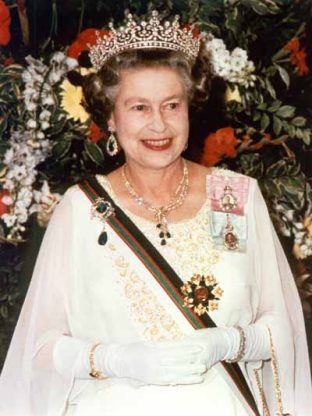
Queen Elizabeth II’s death on Sept. 8 brought the future of the British monarchy into question, and it caused the country to reflect on her time as a monarch.
She was revered by many, but others saw her as a token of Britain’s oppressive imperial legacy.
“I think this is the complaint of post-colonial and decolonial people in the world,” Dr. Kathleen Wilson — a Stony Brook University history professor who studies modern British cultural and political history — said. “The monarch papers over the atrocities and the inhumanities by putting a benign white woman who loves and cares about her subjects. And let me just say this, I think the grief for the Queen is genuine.”
Following her death, some post-colonial nations have begun to revive discussions about independence from the monarchy as a whole, now led by her son, King Charles III.
Coronated at 25 years old after the death of King George VI, Queen Elizabeth II was widely considered to be a palatable figurehead. According to a 2022 Statista poll, 81% of Britons had a “positive opinion” of the Queen. She largely abstained from politics, which attracted neither left nor right-wing criticism.
However, her son, King Charles III, has proven himself more opinionated — for example, his notorious “black spider” memos, named for his sloppy handwriting. These memos were letters directed towards British legislators, urging them to act in favor of certain policies, such as passing environmental regulations. The reveal of these letters raised questions about whether the new King will honor the strictly ceremonial nature of his position.
Most notably though, and most staining on the reputation of the former Queen Elizabeth II, was the death of Princess Diana. When Diana — whom Prince Charles allegedly cheated on with the current Queen consort Camilla — died in a car accident, the royal family’s social standing was wounded. The aftermath made the Queen appear cold and estranged her from her subjects for some time.
“I feel like most people don’t like the Queen because of how she treated Princess Diana.” Ella Hartenberg, a sophomore marine biology major said. “I guess I was indifferent [about the Queen’s death].”
The relevance of the royal family and their status has also come into question.
“The monarchy should be abolished because it vaporizes the notion that privilege is hereditary,” Wilson said.
Hartenberg felt similarly.
“It is such an odd, older concept of how people in the royal family are better just because of their birthright,” she said.
Queen Elizabeth ruled in conjunction with 15 prime ministers throughout her reign. Famously, her relationship with Margaret Thatcher, the former Prime Minister of the United Kingdoms, was especially complex.
Thatcher’s staunch conservatism was reportedly not well-liked by the Queen. In 1986, the Sunday Times reported that the Queen admitted she felt the Conservative Party Government “lacked compassion.”
According to Wilson, Thatcher’s mark on the UK made Queen Elizabeth II a much more benevolent figure in terms of the reputation of British imperialism.
“Compared to Thatcher, who was actively denying passports to people of color from the colonies, Elizabeth looks like a hero, even though she lives the life of an 18th-century princess” Wilson said. “And for that, her $28 billion fortune is saved from any parliamentary interference.”
As the importance of the royal family is reevaluated, discussions about their lineage are also a bit more energetic in post-colonial states. In Jamaica, the Solomon Islands and several other nations of the Commonwealth, this has been brewing for some time.
Over the course of her 70 years as monarch, Queen Elizabeth II visited all but four of the Commonwealth of Nations, an association of 56 states colonized by Britain.
While the Queen’s trips to the commonwealth nations were generally well-received, Prince William and Princess Kate’s trip to Jamaica five months ago, amid protests calling for reparations and independence, were not as favorable optics for the royals and drew further criticism to the monarchy.
“The sort of photo opportunities provided by William and Kate in the Caribbean did them no good,” Wilson said. “[The photos were] of Black people inside a chain-linked fence trying to reach the fingers of the white sovereigns on the other side. No one wants to be a part of that world anymore”
When asked whether or not independence for nations of the Commonwealth seems like a possibility in the near future, Wilson gave a firm yes.
“This is a completely different world for Britain, and they’re going to have to come to terms with the legacy of their empire.”










